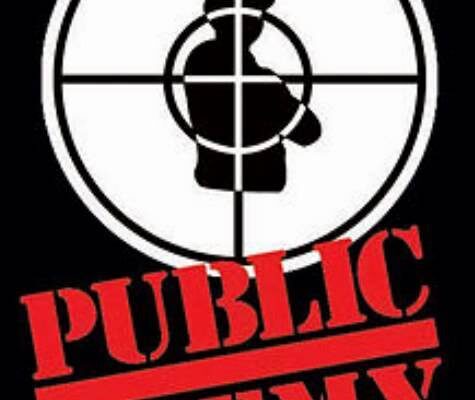by David Rogers, Executive Director
The special assistant attorney general finally released the long awaited report on Oregon Department of Justice’s surveillance of people using the Black Lives Matter hashtag among others. The report and the 162 page appendix is disturbing and reveals a range of deeply troubling issues about the Criminal Justice Division of DOJ, so much so, that we decided we needed to tackle it in separate posts.
I want to take a moment to explore what we learned about the implications of law enforcement’s echo chamber of prejudice and shallow cultural knowledge.
You may have already seen the media delight in the fact that DOJ analysts mistook Public Enemy’s logo as a sign of an imminent threat to law enforcement. (Public Enemy was a hip hop group popular in the late 80s and 90s whose music infused commentary about the political and social experience of Black Americans. “Fear of a Black Planet” still stands as one of my top ten hip hop albums of all time.)
As the DOJ was illegally examining the Twitter feed of one their own employees snared in the DOJ’s electronic surveillance of people who used the Black Lives Matter hashtag in Salem, the agent saw the Public Enemy logo with words from one of their live albums: “Consider Yourselves Warned!!!” Apparently, this image stood out along with a range of other satirical, political cartoons, and images even though these images are easily found on social media sites belonging to hundreds of thousands of reasonably politicized People of Color. The next thing that happened was a threat assessment report was written and went all the way to the desk of Oregon’s attorney general. Wait! What?
This situation may lead some to joke about how the DOJ’s Criminal Justice Division needs training on basic hip hop history, but the DOJ report shows a very disturbing pattern.
The Criminal Justice Division is in charge of identifying and assessing threats to the public and law enforcement, but their lack of diversity and cultural competency has them utterly disconnected to reality.
The report shows that DOJ analysts and supervisors have no clue how to recognize run-of-the-mill political cartoons and commentary from things that should actually concern them.
For instance, a satirical cartoon showing a police officer shooting at a monument of MLK elicited the following response from an analyst: the cartoon “makes it appear that law enforcement hate everything that Martin Luther King stood for” and other posts were “making all white people seem racist.”
Can I get just a little bit of self-reflection from the Criminal Justice Division at DOJ? It is no mystery that America’s criminal justice system is damaged by shameful and severe racial disparity, and we live in a country where instances of law enforcement being held accountable for misconduct are few and far between. It should be relatively clear why and how the level of trust between law enforcement and communities of color has been so damaged.
Apparently graphic satire can’t be used as humor or a coping mechanism by People of Color dealing with institutional racism without it being considered a threat.
But the report also shows a larger national problem. Analysts repeatedly reference hearing or seeing reports from other law enforcement agencies that perpetuate deeply biased thinking, framing Black Lives Matter activists as threats. We see a self-reinforcing bubble of bias among law enforcement agencies with absolutely no counter balance or reality check. In other words, law enforcement agencies are talking to themselves with little cultural knowledge outside of the White mainstream. They have little training on implicit bias, cultural competency, or profiling, and whatever training they do get is clearly inadequate. So narratives like, "Black Lives Matter activists are threats to law enforcement," never get challenged or questioned, rather they get propagated. In this climate, racial profiling is a logical outcome.
And yet they are supposed to be protecting us.
Note: Chuck D, founder of Public Enemy, shared that the crosshairs logo symbolizes the Black man in America.
This post is part of a series exploring what we have learned about the DOJ surveillance of Black Lives Matter in Oregon. Click here to see all of our posts on this topic.

